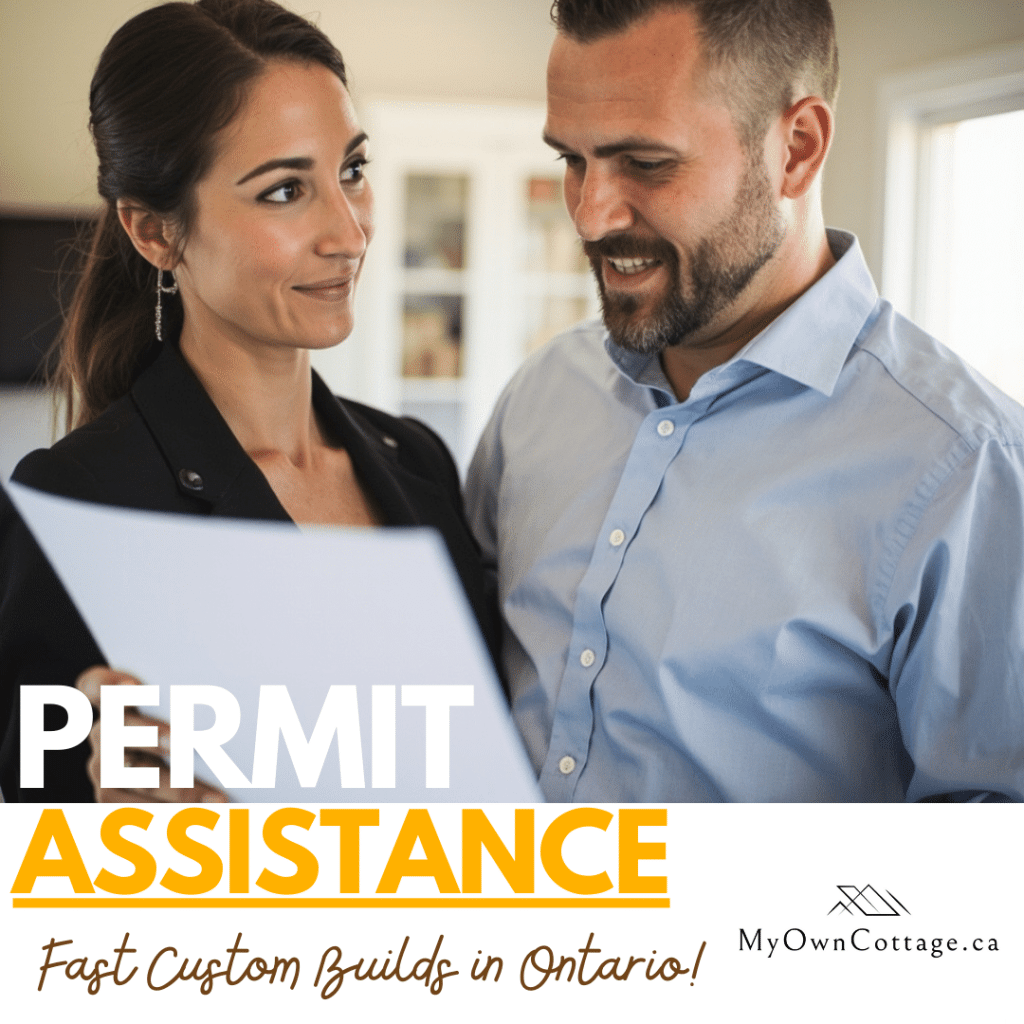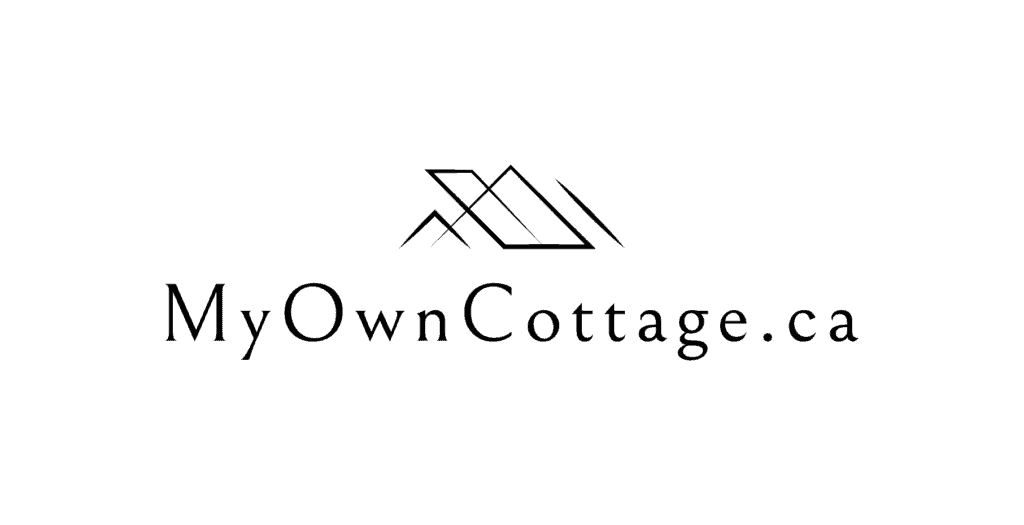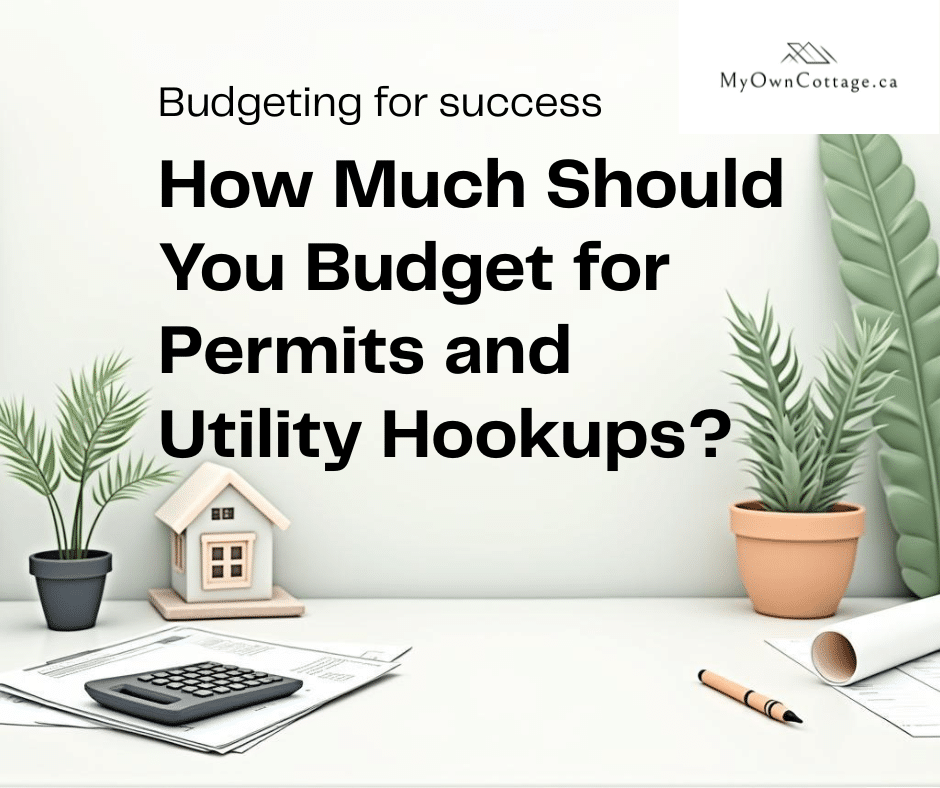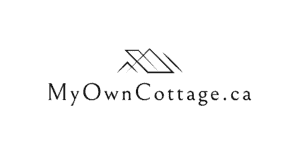How Much Should You Budget for Permits and Utility Hookups in Ontario Prefab Homes?
📅 Last updated: September 10th, 2025
✍️ Written by prefab building specialists at My Own Cottage
When budgeting for a prefab home in Ontario, most people focus on square footage, finishes, and delivery schedules. However, one of the most overlooked—and often costly—factors is permits and utility hookups.
These expenses can vary significantly depending on your municipality and lot conditions. In some cases, they may add just a few thousand dollars, while in others, the total can exceed $60,000.
By understanding these costs early, you can avoid unpleasant surprises and plan your finances more accurately.
Typical Costs for Permits and Utility Hookups in Ontario
This guide will help you anticipate permit and utility hookup costs through clear explanations, real data, and practical examples.
For a deeper dive into overall pricing, be sure to review our pillar page on the cost per square foot of prefab homes in Ontario.
Why Permits and Utility Hookups Are Important in Ontario Prefab Homes
Before you can break ground on your prefab home, you’ll need approvals and connections to essential services.
Expenses can vary significantly depending on your municipality and lot conditions — especially when you consider how much land impacts prefab home costs in Ontario.
Bear in mind, these steps aren’t optional—skipping them can delay your project or even leave the home uninhabitable.
Here are the key costs to plan for in Ontario:
Building Permits: Required to confirm your prefab home complies with the Ontario Building Code.
Development Charges – Municipal fees that help fund local infrastructure such as roads, water systems, and schools.
Utility Hookups – Costs for connecting water, sewer, hydro, natural gas, or propane services, depending on your location.
💡 Tip: Budget for these items upfront to avoid unexpected expenses and costly construction delays.

Depending on your region, you may also want to explore whether small prefab homes are more expensive per square foot in Ontario.
2025 Average Permit Costs for Ontario Prefab Homes
✅ Building Permit Costs in Ontario
Typical Range: $1,500 – $5,000+
Higher-Cost Areas: In cities like Toronto and Ottawa, permit fees can exceed $5,000. This partly explains why prefab home prices are higher in Toronto compared to smaller cities.
Lower-Cost Areas: Rural municipalities often charge less, sometimes closer to the lower end of the range.
Example: A 1,500 sq. ft. prefab home in a mid-sized Ontario city may require about $3,200 in permit fees.
💡 Tip: Confirm permit fees and utility connection charges with your local municipality and providers—costs vary by location, project complexity, and policies that change year to year.
✅ Municipal Development Fees and Charges in Ontario
Urban Areas: $20,000 – $40,000+ (e.g., Mississauga, Ottawa)
Rural Towns: Some municipalities reduce or even waive fees to attract new development
💡 Tip: Development charges can be one of the largest upfront costs for a prefab home. Always check your municipality’s current rates—policies vary widely and can change from year to year.
➡ For a bigger picture, see our breakdown of prefab home costs in urban centers.
Utility Hookup and Service Fees for Ontario Prefab Homes
🚰 Water & Sewer Hookup Costs
Municipal Connections: Typically $3,000 – $10,000+ for water, sewer, and hydro
Rural Setups: If municipal services aren’t available, well and septic installations can cost $25,000 or more
💡 Tip: Utility hookup costs depend on lot conditions and the distance from existing service lines. Always confirm with local utility providers or contractors before finalizing your budget.
If you’re weighing options, it’s also worth asking is it cheaper to build a prefab home or buy an existing house in Ontario?
⚡ Hydro One Connection Costs in Ontario
Typical Range: $5,000 – $15,000+ for new service connections
Rural Properties: Longer distances from the nearest power line may double costs due to trenching, pole installation, and additional infrastructure
💡 Tip: Request a site-specific Hydro One estimate early—pricing depends on distance, terrain, and required upgrades.
🔥 Natural Gas and Propane Costs in Ontario
Natural Gas (Enbridge / Union Gas): $2,000 – $5,000 for new service connections
Propane Tanks (Rural Properties): $3,000 – $7,000 for installation and setup
💡 Pro Tip: Ask your prefab builder if utility connections are included in the package. Some turnkey builds bundle these costs, while others leave them to the homeowner.
Budgeting Summary: Permit & Utility Costs in Ontario
Depending on your lot and location, permits and utility connections usually range between $30,000 and $60,000.
Be sure to include these figures in your financing plan — our guide on how do you pay for a prefab home explains common payment options.
✅ Key Tips to Plan Ahead:
Rural Properties: Expect higher costs due to septic systems, wells, and longer hydro runs
Use Online Calculators: Get rough estimates before submitting applications
Plan Financing Early: Include these costs in your mortgage or construction loan
Check for Exemptions: Some municipalities reduce or waive fees for smaller prefab homes
💡 Pro Tip: Always confirm costs with your municipality and utility providers. Rates and policies change frequently, and estimates can vary widely by region.
These differences also tie into where in Ontario prefab homes are the cheapest per square foot.
Real-World Examples of Permit & Utility Costs in Ontario
📍 Urban Prefab Home Costs in Ottawa
Sample Cost Breakdown (Mid-Sized Ontario City, 1,500 sq. ft. Prefab Home)
| Cost Category | Estimated Cost |
|---|---|
| Building Permit | $4,800 |
| Development Charges | $28,000 |
| Hydro Hookup | $6,500 |
| Water & Sewer | $8,500 |
| Total | ≈ $47,800 |
💡 Note: This example is based on typical fees in a mid-sized Ontario city. Actual costs vary by municipality, lot conditions, and utility providers. Always confirm with local authorities before finalizing your budget.
🌲 Rural Prefab Home Costs in Muskoka
| Cost Category | Estimated Cost |
|---|---|
| Building Permit | $2,200 |
| Development Charges | $0 (exempt) |
| Well Drilling | $12,000 |
| Septic System | $18,500 |
| Hydro Hookup | $14,000 |
| Total | ≈ $46,700 |
💡 Note: Rural builds often avoid development charges, but higher costs for well drilling, septic installation, and extended hydro connections can make the total comparable to city builds.
👉 Learn more with our case studies in hooking up utilities to a prefab cottage in Ontario.
✅ Checklist for Ontario Prefab Permits & Utilities
Before starting your prefab home project in Ontario, use this checklist to make sure you’ve budgeted for all key permit fees, utility connection charges, and installation costs:
📑 Permit & Approval Costs
Building Permit – Confirm compliance with the Ontario Building Code.
Electrical Permit – Required for hydro service connection.
Plumbing/Water & Sewer Connection Permit – Municipal approval for hookups.
Gas Permit – Needed if connecting to natural gas.
Zoning & Development Charges – Check for municipal impact fees or exemptions.
🔌 Utility Hookups & Installation Costs
Hydro Connection Fees – Site-specific estimate from Hydro One or local provider.
Water & Sewer Installation Costs – Includes trenching, piping, and connection charges.
Well Drilling & Septic System (if rural) – Budget for $25,000+ depending on soil/lot.
Natural Gas Service or Propane Tank Installation – Compare connection fees vs. rural propane costs.
Telecom & Internet Setup – Optional, but plan for trenching or service line extensions if rural.
💰 Financial Planning & Hidden Costs
Inspection Fees – Required by municipalities for safety and compliance.
Trenching & Grading Costs – Extra installation expenses for rocky, sloped, or remote lots.
Impact Fees – Local infrastructure charges (roads, schools, water treatment).
Contingency Fund – Add 10–15% buffer for unexpected utility expenses.
📌 Pro Tip: Create a folder with all quotes, permits, and fee schedules. Municipal charges and connection costs can change annually, so always confirm with local authorities before finalizing your prefab home budget.
📊 Beyond these expenses, homeowners should also consider prefab construction timelines and labor costs, since they affect the total budget.
Quick Q&A: Budgeting for Permits & Utilities in Ontario
💰 How much should I budget for permits and utility hookups?
Most Ontario prefab homeowners should budget $30,000–$60,000, with final costs shaped by location, access, and services required.
❓ Why do costs vary so much?
Several factors influence fees:
Municipality policies: Each city or town sets its own rates
Proximity to utility lines: Longer distances mean higher costs
Soil and terrain conditions: Rocky or sloped lots may require extra work
Home size and type: Larger or more complex prefab homes may face higher permit fees
📑 What permits are required?
Most prefab home projects in Ontario require:
Building Permit – Confirms compliance with the Ontario Building Code
Water and Sewer Connection Permits
Electrical Permit (and Gas Permit, if applicable)
🏗️ What are development charges?
Development charges are municipal fees that fund infrastructure growth such as roads, schools, and water treatment facilities. In urban areas, they can exceed $30,000.
💡 Can I reduce these costs?
Yes, in some cases:
Rural municipalities may reduce or waive development charges to attract new builds
Prefab builders sometimes bundle utility hookups into turnkey packages, lowering your out-of-pocket costs
- Energy efficient homes may cost more upfront, but the ROI can help offset overall expenses over time
Next Steps Toward Permits and Utility Hookups
Factoring in permits and utility hookups is essential for creating an accurate prefab home budget.
Across Ontario—whether you’re building in Toronto, Ottawa, or a rural township—homeowners should plan for $30,000 – $60,000+ in added costs before move-in.
To create a full financial picture, return to our pillar guide on the cost per square foot of prefab homes in Ontario. There, you’ll find construction costs, finishes, and long-term value comparisons.
👉 Ready to plan with confidence? Get a prefab home cost estimate tailored to your Ontario lot.
Simply book a free consultation, call us directly or view our design catalogue to get started today.
🧑💼 Request a Free Consultation
📲 Call Us Directly: (705) 345-9337
🏘️ View Our Design Catalogue
✅ Ontario-Built | ⚡ Energy-Efficient | 🏡 Fully Customizable | 🚚 Fast Delivery
Alternatively, for your convenience, you can also simply fill out the contact form below and we’ll get back to you soon! 👇
FAQ: Budgeting for Permits and Utility Hookups
How much should you budget for permits and utility hookups?
Plan to spend $5,000 to $30,000+ for utility hookups and $500 to $2,000+ for permits. Exact costs depend on location, distance to services, utility types, and project complexity.
What factors affect permit and utility hookup costs?
Costs vary by location, distance to existing lines, number of utilities, soil and terrain conditions, and permit requirements. Urban areas often have higher fees, while rural areas face higher hookup costs due to longer utility runs.
Why does distance from existing utility lines matter?
The farther your property is from existing water, sewer, or power lines, the higher the cost. Extending utilities requires trenching, piping, and sometimes new infrastructure.
What permits are usually required for utility hookups?
Municipalities typically require permits for water, sewer, electrical, and sometimes gas connections. Permit fees are set locally, so confirm with your city or county building department.
What are impact fees in construction projects?
Impact fees are local charges to fund infrastructure expansion in growing areas. They can add thousands of dollars to hookup costs and should be included in your budget.
How can you get the most accurate estimate for permits and hookups?
Contact your local municipality for permit fees and reach out to utility providers for connection quotes. This ensures your budget reflects site-specific conditions.
What additional costs should you plan for besides permits and hookups?
Expect extra expenses for grading, trenching, and inspections. These site-prep and compliance costs can significantly increase the total budget.
🛡️ Verified Third-Party Resources
For added confidence and transparency, here are trusted external sources that support modular homebuilding in Ontario:
Ontario Building Code (O. Reg. 332/12)
Official provincial regulations that govern modular and factory-built homes.Tarion Warranty Corporation
Provides home warranty coverage and builder licensing in Ontario.Canadian Home Builders’ Association (CHBA)
National organization supporting residential construction, modular certification, and best practices.CMHC – Canada Mortgage and Housing Corporation
Federal housing authority offering insights on modular housing affordability, financing, and energy efficiency.Statistics Canada: Housing Data
Data-driven research on Canadian housing trends, ownership, affordability, and construction.


